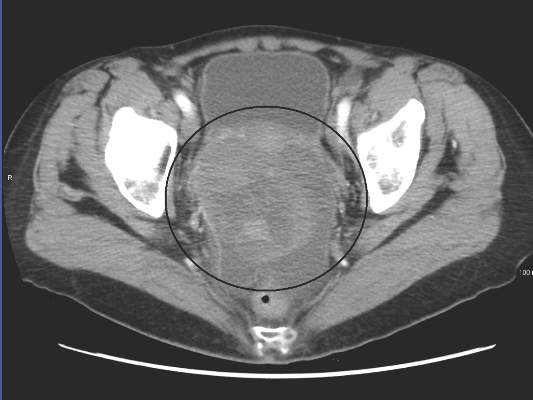FROM JOURNAL OF CLINICAL ONCOLOGY
Although the use of neoadjuvant chemotherapy for treatment of women with advanced ovarian cancer has grown significantly in recent years, a new study shows that it is associated with worse overall survival for women with stage IIIC disease, compared with primary cytoreductive surgery.
Among 594 women with advanced ovarian cancer treated at one of six major comprehensive cancer centers, median overall survival (OS) for women with stage IIIC cancers treated with neoadjuvant chemotherapy (NACT) was 33 months, compared with 43 months for women treated with primary cytoreductive surgery (PCS), reported Larissa A. Meyer, MD, of the University of Texas M.D. Anderson Cancer Center in Houston, and her colleagues.
There were no significant survival differences between chemotherapy and surgery for women with stage IV disease, however, and for these patients neoadjuvant chemotherapy was associated with fewer morbidities, and may be a better therapeutic option, the investigators reported.
“Although additional biases may persist despite propensity-score matching, our results suggest that in carefully selected patients with stage IIIC disease, PCS is associated with a survival advantage, with overall low rates of surgical morbidity. In contrast, for patients with stage IV disease, our results confirm that NACT is noninferior to PCS for survival, with fewer ICU admissions and rehospitalizations, which suggests that NACT may be preferable for patients with stage IV ovarian cancer,” they wrote in the Journal of Clinical Oncology (2016. doi: 10.1200/JCO.2016.68.1239 ).
The increase in the use of NACT in women with advanced ovarian cancer in the United States was spurred by two randomized clinical trials, the investigators noted. The first, published in 2010 showed that survival was similar for women with stage IIIC or IV ovarian cancer treated with either neoadjuvant chemotherapy followed by interval debulking surgery or with primary surgery followed by chemotherapy. The second study, published in 2015 , found that “in women with stage III or IV ovarian cancer, survival with primary chemotherapy is noninferior to primary surgery. In this study population, the researchers stated that “giving primary chemotherapy before surgery is an acceptable standard of care for women with advanced ovarian cancer.”
To see what effect these trials had on clinical practice and outcomes in the United States, the authors conducted an observational study of patients treated at six National Cancer Institute–designated cancer centers, looking at NACT use in 1,538 women diagnosed with ovarian cancer from 2003 through 2012, and at OS, morbidity, and postoperative residual disease in a propensity score–matched sample of 594 patients.
They found that for women with stage IIIC disease, NACT use increased from 16% during the period 2003-2010, to 34% during 2011-2012. For women with stage IV disease, NACT use grew from 41% to 62% during the respective time periods (P for trend for both comparisons = .001).
As noted before, median overall survival among women with stage IIIC disease in the propensity score–matched sample was significantly shorter for those treated with primary NACT vs. PCS.
For women with stage IV disease, however, there was no significant difference in OS between those treated with NACT (median 31 months) vs. those treated with PCS (median 36 months, hazard ratio 1.16, not significant).
Women with stages IIIC and IV disease who received NACT were less likely to have one or more centimeters of residual disease postoperatively and were less likely to have an ICU admission or rehospitalization (P for all comparisons = .04). However, overall survival was lower among women with stage IIIC disease who had only microscopic residual disease or residual disease measuring 1 cm or less (HR, 1.49; P = .04).
“Future studies should prospectively consider the efficacy of NACT by extent of residual disease in unselected patients,” the authors recommended.
The study was supported by grants from the National Cancer Institute and Cancer Prevention and Research Institute of Texas. Dr. Meyer and multiple coauthors disclosed honoraria, research funding, and/or advising/consulting with various pharmaceutical companies.





